Amidst the perfectly coiffed Poodles prancing around dog shows, it’s easy to forget that these pampered pets were initially bred for hunting. That’s right – beneath those fancy haircuts lies a rugged, durable working dog. As an avid outdoorsman and dog lover, I’ve always been fascinated by the Poodle’s origin story and their versatility. Join me as we deeply dive into the Poodle breed‘s unexpected history and remarkable hunting abilities. Grab your binoculars and dog-eared duck-hunting cap, and we’re going on an adventure!
Table of Contents
- 1 The Origin and History of the Poodle: From Germany’s Water Dog to Royalty’s Companion
- 2 The Poodle’s Impressive Hunting Abilities: A Natural Knack for Retrieving
- 3 From Circus Performer to Royalty’s Companion: Factors Influencing the Poodle’s Changing Roles
- 4 Hunting Poodles Today: Field Trials, Proper Training and Impressive Instincts
- 5 Remarkable Benefits of the Poodle’s Versatility
- 6 Potential Challenges: Grooming, Training, and Proper Care
- 7 Reshaping the Stuffy Stereotype: Celebrating the Poodle’s True Identity
- 8 Parting Words from an Aspiring Poodle Ambassador
- 9 Related posts:
- 10 Poodle Puppies (20+ Perfect Pups)
- 11 Do Poodles Shed? (Yes but only a little)
- 12 Do Poodles Shed Their Puppy Coat?
- 13 Miniature Poodle: Breed Info & Characteristics
The Origin and History of the Poodle: From Germany’s Water Dog to Royalty’s Companion
Tracing back the roots, the Poodle likely originated in Germany in the Middle Ages, descending from a dog similar to today’s Standard Poodle. The Poodle was Germany’s water dog, used by wildfowl hunters to retrieve game from water, akin to how England had the English Water Spaniel and France the Barbet.
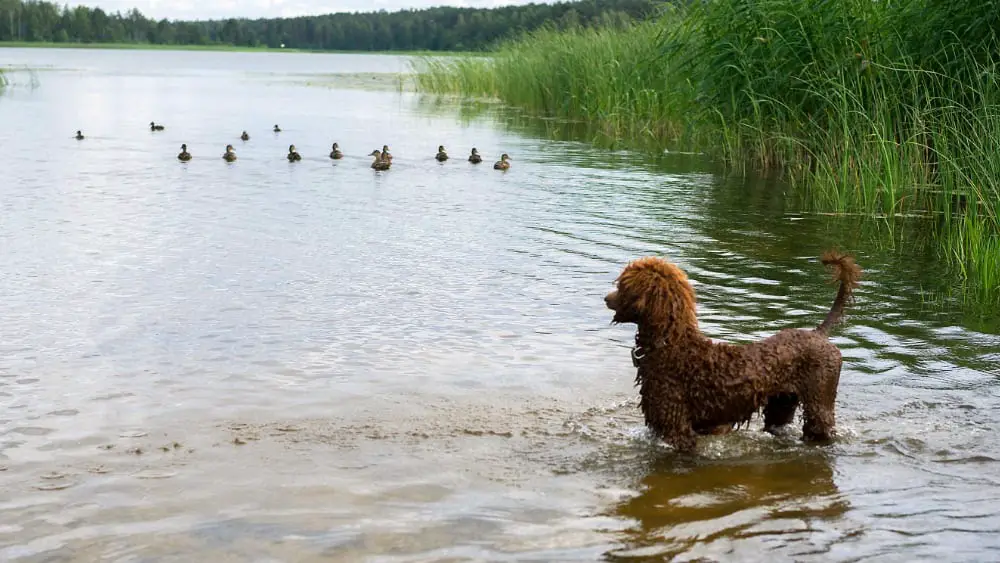
The Germanic name for the breed “Pudel” or “Pudelin” comes from the Low German word “puddeln,” meaning “to splash in the water.” This name reflects the breed’s original role as a water retriever or “puddle dog.”
Works by various German artists dating back to the 17th century depict dogs of recognizable Poodle type. One of the earliest known depictions is an oil painting from 1496 in the Auckland Museum. Baroque painter Rembrandt also featured a brown and white Poodle in his 1631 self-portrait. 18th-century animal painter George Stubbs captured a curly Poodle in a punt in his 1780 work “White Poodle in a Punt.”
In literature, Poodles were often referred to as “water spaniels” and “pudels,” highlighting their “puddle dog” water-loving nature. So, while today, most associate Poodles with beauty salons and dog shows, they were initially bred as rugged, durable working dogs retrieving waterfowl. Over time, as their popularity grew, Poodles expanded into roles like circus performing and companionship for royalty while hunting waterfowl. Despite this shift, their intelligence, trainability, and eagerness to please still make Poodles excellent hunting partners in the field.
The Poodle’s Impressive Hunting Abilities: A Natural Knack for Retrieving
So, what makes the Poodle well-suited for hunting? They’re natural water dogs equipped with webbed feet and a water-resistant coat designed explicitly for retrieving ducks. Their webbed toes provide stability and paddling power, while their dense, curly, hypoallergenic coat protects them from the elements while keeping them warm in frigid water.
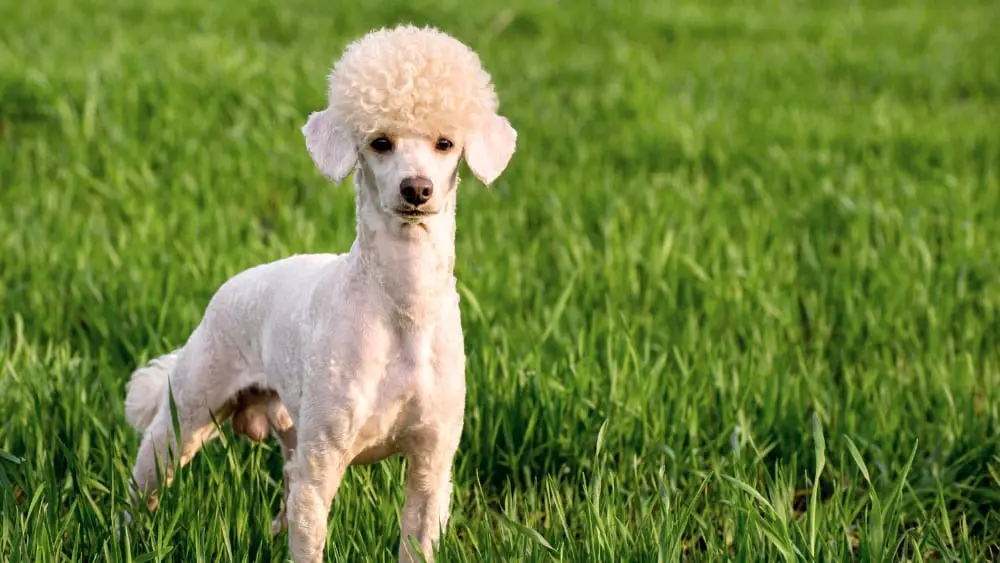
Beyond their physical features, Poodles are incredibly intelligent, ranking among the smartest dog breeds. Their high intelligence and eagerness to please make them highly trainable. Most Poodles have a natural retrieval instinct that can be honed through training to handle birds without damaging the meat.
Poodles also have an excellent sense of smell and sharp vision, essential for spotting and tracking games even in complex environments. Unlike humans, dogs have a sense of smell around 10,000-100,000 times more acute than ours, allowing them to detect prey nearby. Their sharp eyesight helps locate birds hiding amidst brush and reeds.
Between their webbed feet, water-resistant coat, high trainability, natural retrieving drive, intense nose, and sharp eyes, the Poodle has all the raw abilities of an ideal hunting dog, especially for waterfowl hunting. Their versatility also allows them to transition smoothly from family pets at home to tireless working dogs in the field.
From Circus Performer to Royalty’s Companion: Factors Influencing the Poodle’s Changing Roles
So, if Poodles were originally bred as hunting retrievers, how did they transform into the pampered show dogs many envision today? As often happens with dog breeds, a combination of factors led to this evolution in the Poodle’s perceived role and popularity.
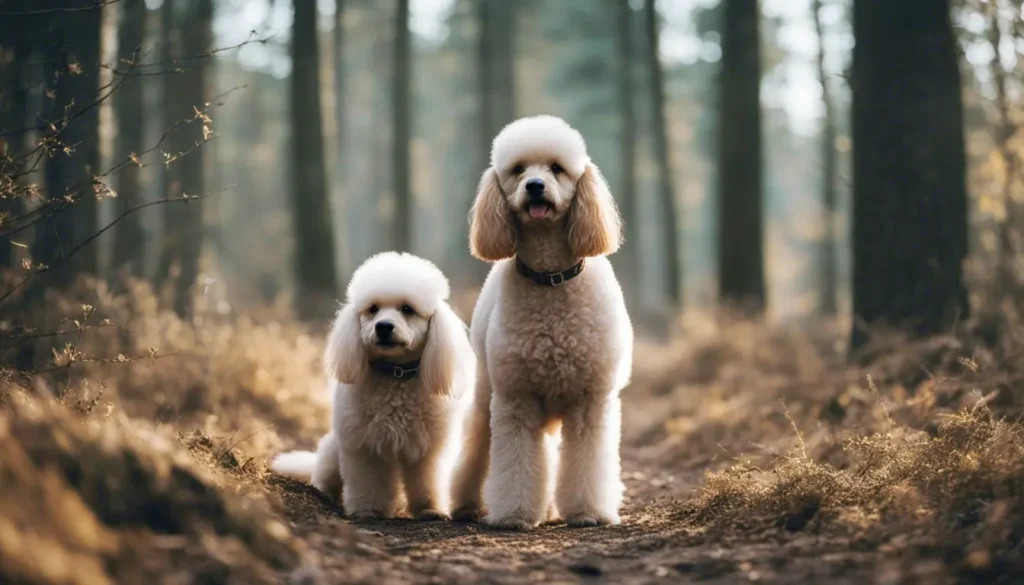
For one, as duck hunting decreased in popularity, Poodles began to showcase their intelligence and trainability in other areas like circus performing. Their athleticism and eagerness to please allowed them to master all kinds of tricks successfully. Poodles were also adopted by royal families across Europe as companions for hunting and beyond. Their trainability and attractive appearance made them natural favorites among the nobility.
The shift from duck hunting also meant less need for their functional waterproof coat and more focus on their stylized aesthetic. Elaborate clipping and grooming became the norm for Poodles rather than a practical way to maintain their working coat. Their elegance and sophistication gained favor among the upper classes.
Gradually, through their circus feats and royal connections, Poodles gained renown more as beautiful, refined pets rather than rugged hunting retrievers. Yet beneath the pomp and circumstance, they retained their intelligence, agility, and instinct for fieldwork.
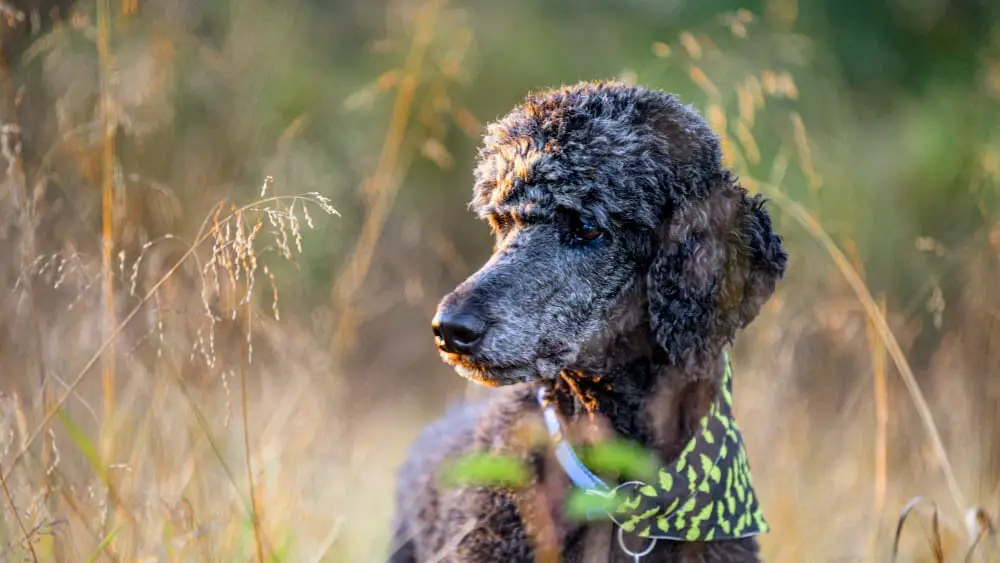
Hunting Poodles Today: Field Trials, Proper Training and Impressive Instincts
Despite their current reputation among some as prissy companion dogs, Poodles continue to participate in hunting tests and field trials, proving their abilities are alive and well. Organizations like the Hunting Retriever Club and North American Hunting Retriever Association allow Poodles to compete alongside other hunting breeds and earn respected titles based on their working abilities.
Success in the field requires proper training from a young age. Around seven weeks, Poodle puppies can begin essential retrieval work with toys and bird wings. Obedience commands like sit, stay, and here lay the foundation for more advanced field skills. Introducing them to water early and often at different locations is vital to building comfort and confidence.
Gun dog training is another critical element, gradually acclimating them to the sound of gunfire from a distance until they can handle a nearby shotgun blast without fear. The goal is to create positive associations between noise and reward through play or treats.
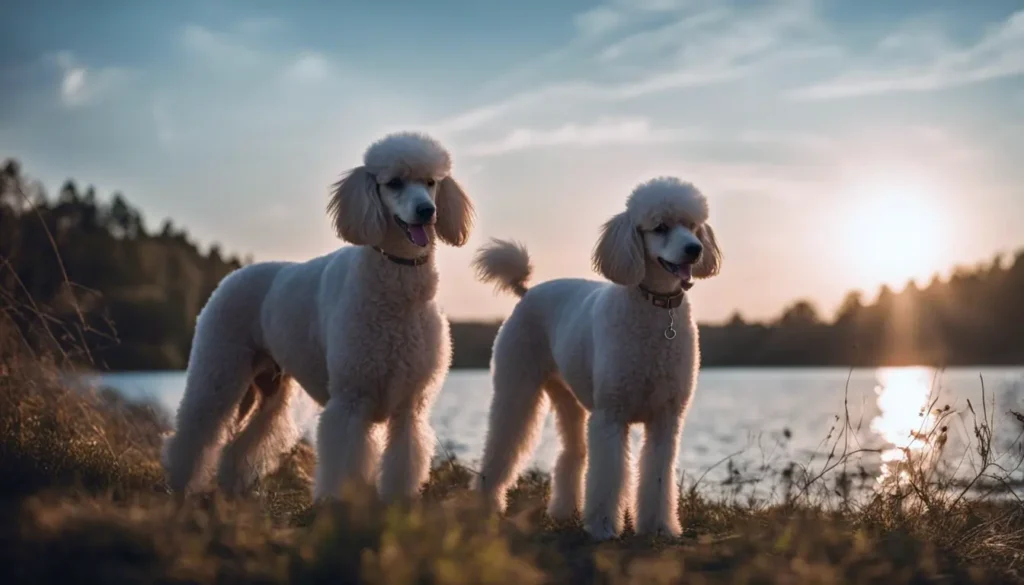
Top-performing Poodles today prove the breed’s mettle for hunting remains strong in the right hands. An experienced hunter named Tina Geske acquired a Poodle named Robbie, who had already begun junior hunt training. She diligently continued his education, earning hunting titles together as a team. Their partnership shows that Poodles still have the drive and aptitude for fieldwork when adequately motivated.
For Louter Creek Hunting Poodles, preserving the Poodle’s hunting abilities has become a passion project. Through careful breeding and training focused on strengthening essential field skills like marking, retrieving, and delivery, Louter Creek dogs regularly excel in hunt tests and field trials. Their success highlights that despite perceptions, Poodles can make just as good hunting companions as other working breeds when selectively bred for performance.
Remarkable Benefits of the Poodle’s Versatility
I’m such a fan of Poodles for hunting because of their remarkable versatility compared to other field breeds. Unlike highly specialized dogs like Pointers, Beagles, or Retrievers bred for one purpose, Poodles can easily transition between home and field. Their non-shedding coat makes them ideal house dogs for families with allergies. Even after a muddy early morning hunt, they clean up nicely and snuggle with the kids.
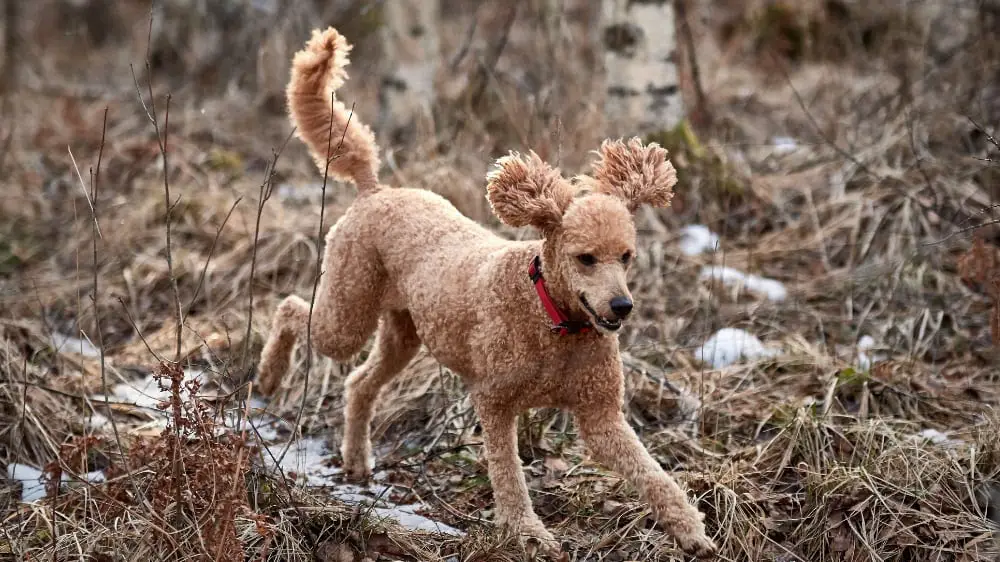
Poodles match their rugged exterior in the field with a sweet, loyal temperament at home. Their intelligence translates into a playful, people-pleasing personality. They pick up new tricks with gusto and crave spending time with their owners. Unlike some working dogs with an independent streak, Poodles actively seek affection and connection.
Beyond their hypoallergenic coat and affectionate nature, Poodles are simply fun dogs overflowing with energy and mischief. They love being active and engaged – whether retrieving ducks or playing a rousing game of fetch. A Poodle will be your adventure buddy, keeping you constantly on your toes. Their enthusiasm is downright contagious.
Potential Challenges: Grooming, Training, and Proper Care
As fabulous as Poodles can be in the home and field, meeting their needs does require some commitment. That lush hypoallergenic coat needs regular professional grooming to prevent matting as the hair grows. Many owners choose to maintain a shorter “puppy cut” for simplicity. Their hair also continues growing, unlike fur, so clipping is non-negotiable.
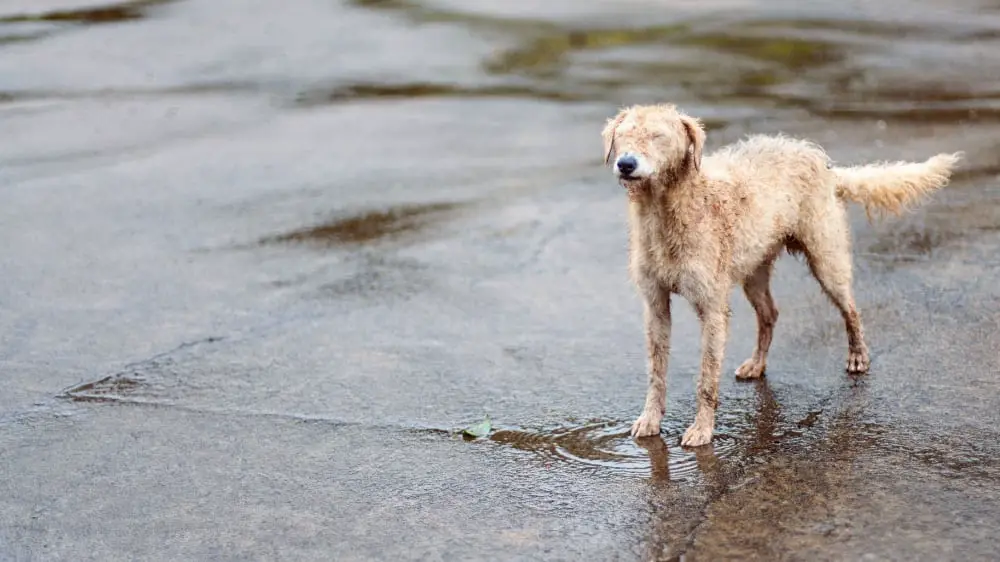
Proper training and socialization from puppyhood are also a must with a brilliant, energetic breed like the Poodle. Early positive experiences help them develop confidence and trust in new situations. Obedience commands and precursor fieldwork get them ready for advanced hunting if desired.
Like many working breeds, Poodles thrive when given an outlet for their high intelligence and stamina. They may resort to mischief like endless barking or chewing without sufficient physical and mental stimulation. Providing puzzles, toys, and new adventures keeps them engaged and out of trouble.
Though they make excellent companions, Poodles are not dogs to be left alone or ignored in the backyard. Their people-oriented personalities need interaction, guidance, and nourishment. But for an active individual or family, a well-trained Poodle’s versatile talents in the home and field make them a rewarding investment.
Reshaping the Stuffy Stereotype: Celebrating the Poodle’s True Identity
With their elaborate coiffures and prancing gaits, it’s no wonder Poodles are seen by some as effete show dogs or pets for the posh. Yet this reputation overlooks the breed’s history as rugged hunters built to withstand harsh conditions retrieving waterfowl. Both popular media and unfamiliarity with their background reinforce the misconception.
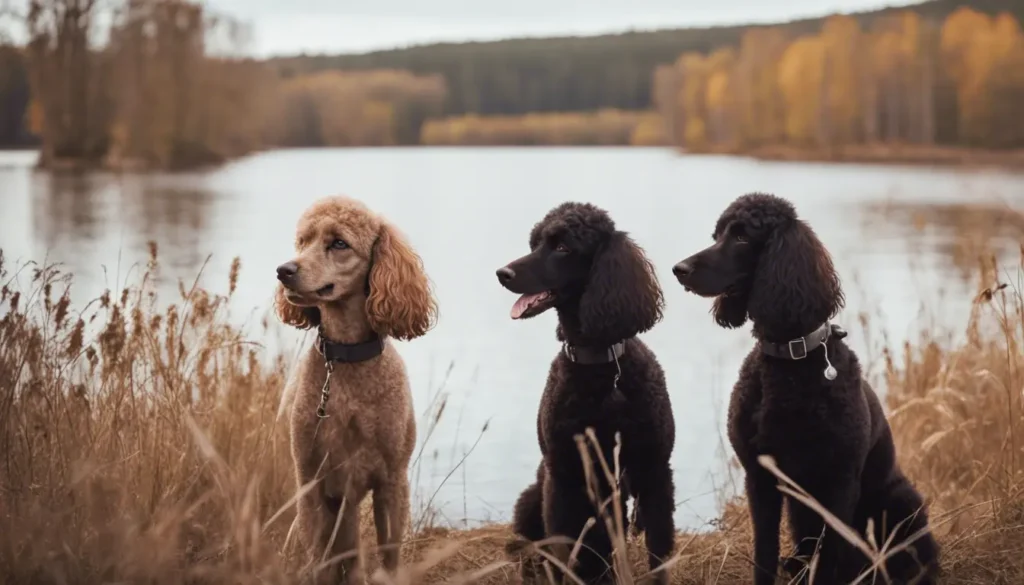
We can reshape perceptions by highlighting the Poodle’s working heritage and innate skillset. Enthusiasts must showcase Poodles successfully hunting, not just primped on the runway. Their versatility, trainability, and staunch loyalty in the field deserve wider recognition. We must celebrate both their outward beauty and inward strength.
Appreciating the Poodle’s intelligence, athleticism, and work ethic reveals the breadth of their abilities beyond beauty alone. They embody the perfect blend of form and function. By letting the Poodle’s charming personality shine through in everyday life, we can help others look beyond the pom poms to see man’s clever companion throughout history. The treasure beneath the curly tresses is a friend for life’s adventures.
Parting Words from an Aspiring Poodle Ambassador
Though my days now consist more of nature hikes and birdwatching (documenting sightings in a cherished journal gifted by my daughter Lily), I’ll always have a soft spot for man’s best friend. I hope by highlighting the Poodle’s lesser-known history and skills as a handler’s partner, and I can help reshape perspectives of this breed that are too often underestimated. Please share your stories of Poodles or other breeds showing their stuff outside the show ring. And if you’re seeking a loyal, versatile best friend, consider rescuing or adopting a Poodle from your local shelter.
So until next time, whether you own a primped show dog or a field-tested hunter, remember to look beyond the coat at the heart of the hound. In this world of dogs, every wag, woof, and whimper tells a story. Here’s to understanding our four-legged friends a little better each day. Poodles and pups alike have so much love to give if we take the time to discover their spirit. Now give your good boy or girl a grateful pat for me!